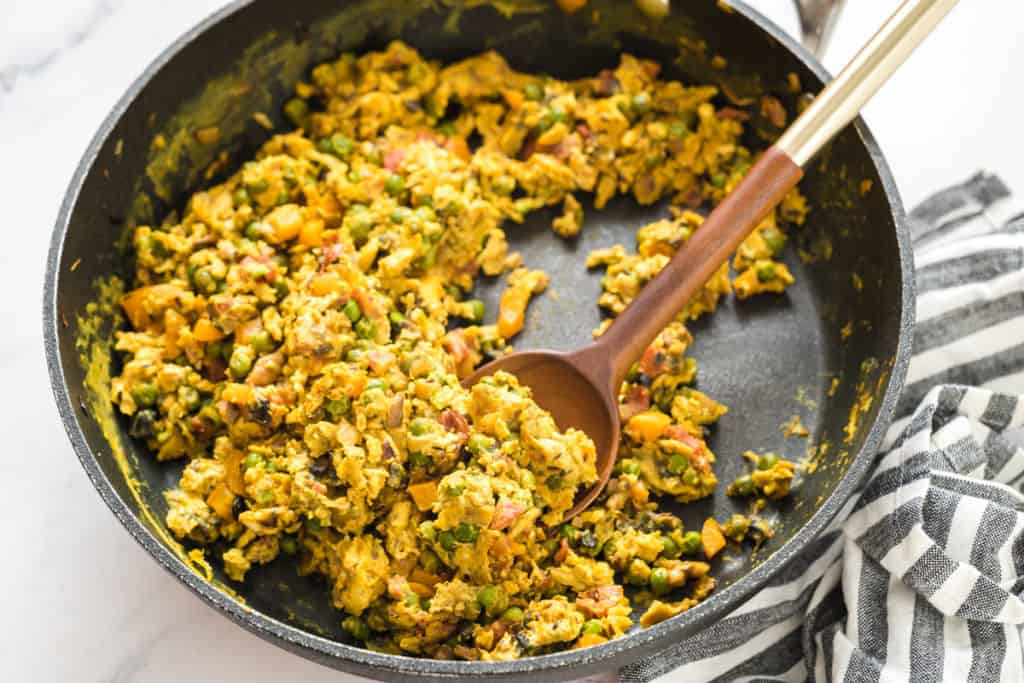Whether you’re becoming a mother for the first time or welcoming another baby into your family, the postpartum period is a time of recovery, repair, replenishing, growth, and alllllll the emotions. It’s when the phrase “two (or 10!) things can be true” could not be more true.
Between the 2 of us we have experienced ‘the 4th trimester’ four times and can attest to the joy, love, and magic that can be felt right alongside overwhelm, anxiety, and exhaustion.
Do you know what else we can attest to?
Giving your future postpartum self ‘gifts’ by doing a bit of preparation while you are pregnant. During all of our postpartum periods, we found these ‘gifts’ made life with a new baby easier on us and our families. Today we are sharing these with you in hopes of bringing some ease, comfort, and nourishment to your ‘4th trimester.’
We’ve put together a list of 8 things you can do during your pregnancy to help feed, support, and sprinkle some love on your postpartum self. We do want to acknowledge that every mother’s experience in pregnancy and postpartum is unique to her. We know what works for one may not work for another annnnd we definitely don’t want to add to your already never-ending ‘to-do’ list or stress. At the same time, we know how much we have benefited from the wisdom, experiences, and ‘tips of the trade’ other mothers have shared with us. With this in mind, we’d encourage you to read through our list and take from it what resonates with YOU and simply leave the rest.
Now, let’s get you ready for baby.
Table of Contents
Make Meals and Snacks to Freeze
We both agree the effort we put into making meals and snacks for postpartum life was 100% worth it.
If your pregnant self has the time, energy, and ability for some frozen food prep here are some things to focus on in the meals and snacks you prepare:
Nutrient-rich foods – As registered dietitians we know nutrient needs are higher as you recover from birth and begin to replenish nutrient stores that were depleted during pregnancy. This rings even more true if you choose to breastfeed as protein, carbohydrate, vitamin A, vitamin C, vitamin E, B vitamins, iodine, choline, and zinc are higher in breastfeeding parents. Many postpartum mothers (breastfeeding or not) can also benefit from increased iron intake.
A simple way to help meet these increased nutrition needs when it comes to meal prep is to focus on whole foods and include 3-4 food groups (with one being a source of protein) in the meals you prep and 2 food groups for snacks.
Food that requires little work beyond defrosting – As moms we know the postpartum period doesn’t leave a lot of extra time for fancy meal prep. We suggest prepping meals that don’t require much work beyond an easy reheat and cooking a fresh pot of rice or pasta.
Food that can be eaten with one hand – Between nursing or bottle feeding and alllll the baby snuggles it’s nice to have foods you can eat while one hand is otherwise occupied. Jessica’s nesting resulted in a chest freezer full of muffins. Weird, we know, but pregnancy brains can’t be reasoned with! Even though she still had to make dinner, those muffins sure came in ‘handy’ (pun intended) as a good one-handed snack to eat while nursing.
Other than muffins, some other ideas include:
Food you know your family enjoys – This is particularly true if you have other little ones at home. Don’t get us wrong – we loooooove experimenting with new recipes and flavours (check out our collection of recipes here). It’s just that your effort and time are extra valuable during pregnancy and postpartum and sticking to ‘tried and true’ foods (or at least test-driving new ones before baby comes) isn’t a bad idea.
Food that has cultural meaning to you – In many cultures there are special traditional foods fed to postpartum mothers. We believe with our whole hearts that there is power in connecting with your culture through food. As the postpartum period can be an especially vulnerable and depleting time for many women, eating foods with cultural significance can provide much-needed comfort, meaning, and support.
While there may not be “western style scientific evidence” behind these foods (simply because they haven’t been studied, not that the beliefs have been disproven), we believe that ancestral tradition may hold a lot of truth. In any case, these foods are typically nutrient-rich, something you can’t go wrong with!
In Nita’s culture, her mother made her a large batch of panjiri which is sort of like a sweet granola made from ghee, semolina, nuts, seeds and spices like cardamom, cloves, and fennel. In Ayurvedic medicine, it’s thought to be warming and healing for the mother postpartum and support milk production.

Our Favorite Meals And Snacks
We couldn’t leave you here without a list of some of our favorite meals and snacks we froze for baby time (and tbh – many of these have become staples in our house since!). Here’s what was in our freezers:
BREAKFAST
LUNCH/DINNER
- Stew-type dishes (beef stew, posole)
- Thai Peanut Chicken (makes 4 freezer meals!)
- Pulled Pork (there’s one in our ebook for babies on solids that’s also soo good for your whole family!)
- Enchiladas
- Chicken Soup
- Daal
- Chicken Pot Pie
- Taco Meat
- Chili
- Meatballs
- Quiche



SNACKS
- Lactation cookies
- Waffles/Pancakes
- Chia Berry Sauce (sooo good on pancakes and yogurt with an extra nutrition boost!)
- Smoothie Packs
- Energy Balls (these ones are great for your toddlers too!)
- Pumpkin Chocolate Chip Cookies (because yummmm!)




If the thought of prepping meals is beyond your energy, time, or abilities during pregnancy please don’t feel like you’re falling short or setting yourself up for failure.
Here are two other options that don’t require as much work:
- Seek out local organizations that specialize in making home-made freezer food – if you are local to Winnipeg we are familiar with:
- Buy freezer friendly meals and snacks from a grocery store! Many grocery stores (hellooooo Costco) have pre-made meals you can freeze (or are already frozen). Supplementing with frozen veggies or a salad can make for a quick, balanced meal!
A couple of days after Jessica had her first baby her parents came over with a rotisserie chicken and noodle salad from Costco. It wasn’t long after, when she realized that she needed to hold her baby 24/7 if she didn’t want to hear him wailing, that she announced to her husband that they, too, needed to become Costco members!
Organize a Meal Train
Another option to keep you nourished after the baby is a meal train. If you’re not familiar with the term, it’s an organized way to enlist your friends and family to feed you and your family. One way we’ve seen this work well is by using a Google doc where everyone signs up with the meal they’re bringing and the day they’re bringing it. That way you don’t end up with 3 lasagnas on the same night. (If you have any dietary restrictions, allergies, etc. you can make note of them in the document as well).
You can also utilize the aptly named, Meal Train website!
Not only do meal trains keep you fed without extra work on your part, but they’re also a great way of enlisting a “village” to support you throughout your 4th trimester and beyond (more on this later!).
Get a Water Bottle (and make it a big one!)
This one is especially for those of you who are planning to nurse your baby. Just like your needs for nutrients such as protein, iodine, and vitamin C are higher during lactation, so are your fluid needs (makes sense, right?). We have never been thirstier than when we were nursing our babies and found it soooo helpful to have a large water bottle we could take anywhere and everywhere.
For some reason, Jessica’s postpartum brain could NEVER remember to refill her water before settling into breastfeed. But as soon as that letdown hit, the thirst was instantaneously insane and she’d be yelling for her husband or toddler for help!
It definitely does not have to be a fancy one with a straw (ahem…), but one that can be used with one hand and doesn’t leak is extra useful!
Here are some ideas to keep you hydrated:
- Set a water bottle beside your bedside
- Keep a water bottle in your baby’s room
- Make it a goal to take sips of water with meals
- Get a water tracking app!
- Set a reminder on your phone every 2 hours to drink some water
- Flavor your water to keep it fun

Set Up a Postpartum Supplement Plan
As dietitians, we work from a ‘food first’ approach when it comes to meeting nutrient needs. However, we also know there are specific nutrients and phases of life where it may be difficult for food alone to meet those needs. The postpartum period is one of those phases for many women, where increased nutrient demands from pregnancy, birth, and lactation may be too hard to fill with food alone. You may have heard health care professionals suggest all women continue to take their prenatal vitamins for a period of time after the birth of their baby. In all honesty we feel this is often prudent, and in many cases appropriate advice.
However, we also feel no matter the phase of life you are in, the best supplement regime is one designed specifically for you that accounts for your medical history, current bloodwork, health priorities, and dietary pattern. This is just as true postpartum as it is any other time in your life.
There are many factors to consider when figuring out which supplements are going to support your postpartum body best. Things such as how you choose to feed your baby (breastmilk or formula), your current bloodwork (your iron status for example), plans for future pregnancies, food preferences (i.e. if you eat fish or not), and your overall dietary pattern (omnivore vs. vegetarian or vegan) all play into your potential postpartum supplement needs.
From an economic and practicality standpoint – it is generally safe to finish any leftover prenatal vitamins you have from your pregnancy.
Our best advice here? Connect with a trusted healthcare professional (such as a family doctor or a registered dietitian) during pregnancy to assess your individual needs and design a postpartum supplement plan to match. Do keep in mind your supplement needs may change throughout your postpartum period for reasons such as blood loss during delivery, changes in dietary intake, current bloodwork, and how you end up feeding your baby.
This ‘fluid’ nature of nutrient needs postpartum is another reason it’s nice to have a healthcare professional on your team to help you navigate the often overwhelming world of supplements and ensure your effort and money are well spent.
It’s also not a bad idea to stock up on vitamin D drops for baby (the less you have to think about postpartum the better, right?!). Where we are, in Canada, it’s recommended that all babies are given a minimum of 400 IU of vitamin D daily from birth (some babies/circumstances require more!). As babies can’t chew or swallow tablets, liquid drops are the safest way to provide this supplement.
If You Haven’t Already…Figure Out Online Grocery Shopping (with delivery!)
While we fully admit this one is not a ‘need to have’…it is verrrrrrrrry nice to have – the time you can save yourself with this one is incredible! These days most grocery stores in urban centers (and some rural) have online grocery shopping and more are offering delivery as well.
Taking time to figure out what is offered in your area and how to navigate their ordering systems is another way you can save your postpartum self both time and brain power! Take it from us, juggling a grocery store cart and a baby requires all sorts of coordination which can definitely be fun, but for big hauls, consider pick up or delivery as an option!
An important consideration here is to factor in additional fees for pickups and delivery! With rising prices everywhere, we understand these extra fees may not be feasible for some families. In these situations, we’d suggest enlisting willing friends and family again! Grocery shopping or simply grocery pick up are great ways your loved ones can help keep you fed and support your recovery.

Make a Plan to Prioritize Rest
If you’re a go-getter, big plans maker, highly efficient person, listen up! This section is especially written for you.
It may not feel like it in the moment, but you’re going to need a lot more rest than you *think* you need.
Unfortunately, this was a lesson us Type A personalities had to learn the hard way.
Many cultures around the globe prioritize rest for the new mother for a period of 40 days or six weeks. This “just so happens” to coincide with how long it takes to establish and build up your milk supply. This traditional wisdom is just that -so wise!
NOTE: we’re very fortunate here in Canada to have a society that supports new parents with paid leave. We know our neighbours to the south of us may need to return to work shortly after giving birth and we mourn alongside you that you don’t get the gift of spending this time with your newborn.
We invite you to learn from our experiences -if we can prevent someone else from the difficulties we experienced, we’d be thrilled that some ‘good’ came out of it!
JESSICA’s STORY
My postpartum experience with my first baby was actually very positive! You can read the full story here, but the TLDR version is that he latched right after birth and fed really well. I was working in public health at the time and consequently received a paid maternity leave. As such, I was able to fully devote all my time and energy to my newborn.
Enter baby number two! This time around I was no longer on a payroll. Since I was self-employed, I didn’t qualify for any paid leave. My husband took the paid leave instead but I still felt responsible to keep my business going. Thankfully, establishing breastfeeding didn’t come with any difficulties but within a week, I was hit with a round of mastitis after taking my baby and preschooler on a 30 minute drive to spend the day with my parents. It really didn’t seem like “too much.” How hard could it be to simply drive somewhere else for the day?
Well, it turns out when you’re supposed to rest, you’re really supposed to just rest! To make a long story short, I kept getting hit with mastitis and the only cause I could find for it was that I was doing too much.
Research on mastitis has come a long way in the past six years so now I can put all the pieces together. In order to breastfeed well, your body needs to have a good letdown. In order to have a good letdown, your body needs a flood of oxytocin. In order for your body to receive a flood of oxytocin, you need to be completely relaxed!
NITA’s STORY
When I had my first baby my plan was to be at my mom and dad’s home postpartum. This is really traditional in my culture and I’m so glad I did that. My husband, my baby, and I lived there for six weeks and I felt so well taken care of. When I close my eyes, I can still feel the warmth during that time. Almost every day we had friends and family visit and while this might not work for some, I loved it.
When my second baby was born, I decided to come back to my home mostly because I didn’t want to uproot my toddler’s life after introducing a new sibling. Thankfully, my in-laws were able to support me with my toddler and his need for high energy play while I recovered. Admittedly, this postpartum period was special but definitely more challenging having a toddler to also care for.
I was definitely thankful for support like cleaning help, a local chef who prepared a few meals for me, and family that came by to hold my baby so I could get some rest.
ERIN’s STORY
With my first baby, I remember very clearly being overwhelmed by alllllll the things I thought I needed to do. I also struggled to ask for the help I needed and to accept help that was offered (something we’ve found many new moms can relate to). This led me to sacrificing much-needed rest in order to keep on top of alllllll the things. And do you know what happened? My body and mental health suffered and my recovery was prolonged.
Believe we when I say I learned the hard way how important rest is for a postpartum mom.

Rest, we say it again, rest!
The thing is, often rest doesn’t come easily after you have a baby. Instead, a plan may be needed to make sure you get it. These plans should include your partner and potentially others who will be supporting you postpartum. We’ve found it extra helpful to have these plans in place before your baby is here. Prioritizing and delegating tasks (such as child care, meal preparation, cleaning, and grocery shopping) along with asking for and accepting help are all key players in plans that will allow you to get the rest you need. Again, keep in mind once the baby arrives your plans sometimes need to shift. That’s ok and to be expected!
Enlist a Postpartum ‘Village’ (of loved ones and professionals)
We’ve talked about leaning on your postpartum ‘village’ a bit already, but we feel this one is so valuable it deserves its own section. We’ve all heard the phrase ‘it takes a village to raise a child’, but have you heard ‘it takes a village to raise a mother’?
We love this saying and believe there is no better gift you can give yourself than a supportive network of trusted friends and family to lighten your load. In addition to loved ones, there are also professionals that specialize in supporting the unique needs of postpartum folks.
Depending on your situation, you may want to bring some of them into your village as well. Here are some supports you may benefit from connecting with before baby (and after as needed):
- Lactation Consultant – If you plan on breastfeeding it can be helpful to have at least the phone number of a lactation consultant you can contact if needed.
- Pelvic Floor Physiotherapist – We can’t sing the praises of the work they do enough! They can be very helpful in pregnancy and preparing for birth as well.
- Doula – If you are in a situation where the support of family and friends is limited, hiring a postpartum doula can help fill that void (also, we are sending you so much love your way). They can do everything from making meals, cleaning, or caring for you and your baby.
- Mental Health Professional – We can’t always predict who will struggle with mental health concerns, such as anxiety and depression, during the postpartum period. However, if you have a history of or are currently struggling with these things (we are sending love your way as well!) connecting with a mental health professional before baby arrives could provide support and strategies to help you navigate postpartum life.
- Family Doctor – If you don’t already have one, finding a trusted family doctor can ensure easier access and continuity of health care for you and baby going forward.
- Registered Dietitian – From designing individualized supplement regimes, to meal planning strategies, to problem solving and helping you reach your health goals, dietitians can be another great source of prenatal and postpartum support.
- Support Groups – in our city there are a variety of drop-in groups for when you’re expecting and when you’re a parent of a child 0-12 months. They’re typically staffed by a support worker, public health nurse, and registered dietitian. These groups are a great place to have any questions answered by professionals + connect with other families!
Many insurance plans and health spending accounts will cover some, if not all, of the fees associated with these professionals. Be sure to check with your insurance company before baby comes.

Remember to Be Kind and Gentle to Yourself (now and after baby!)
Last, but definitely not least, on our list of ‘gifts’ you can give yourself postpartum (and pregnant) self is loads of self kindness. This one seems to be easier said than done for most of us; however, it is truly one of the best ways you can support yourself during these vulnerable and transformative phases of life.
Gentle kindness can look different for everyone as we all experience pregnancy, birth, and postpartum life in our own unique ways. Here are a few practices that have helped us be kind and gentle with ourselves throughout our motherhood journeys:
- Meditation
- Gratitude journals
- Asking for and accepting help
- Lowering or adjusting expectations of ourselves
- Connecting with other mothers
If you have other ways you practice gentle kindness towards yourself, we’d love to hear them in the comments!
You’ve Got This!
There you have it – 8 things to do (if you can) before baby arrives your postpartum self will thank you for. We truly hope the experiences we’ve shared as dietitians and moms can bring knowledge, support, and a sense of empowerment to your postpartum journey.
Again, please take from this list what resonates with you and your individual situation. Every pregnancy and postpartum experience comes its own unique set of joys and challenges. Listening to your body and mind is what will ultimately serve you best.
This blog post was written in collaboration with Erin Steed, Registered Dietitian and mom of three along with Jess and Nita of Happy Healthy Eaters.






